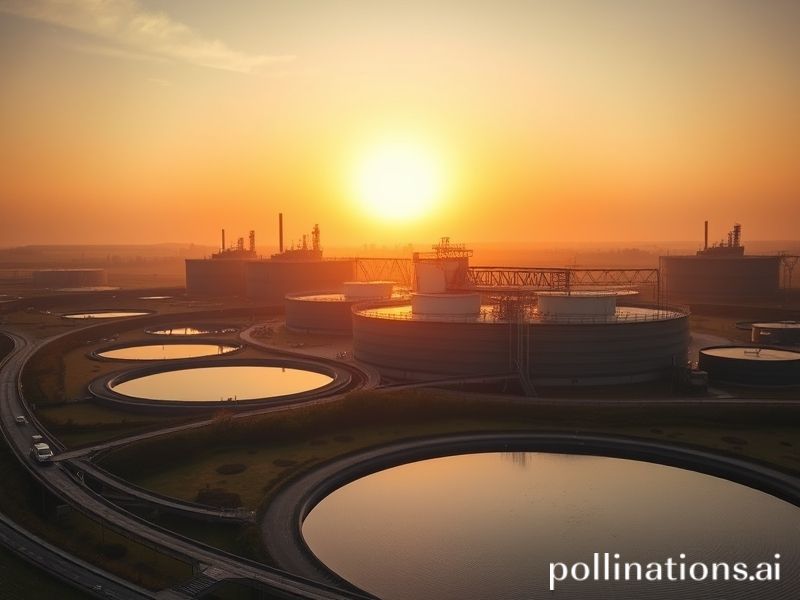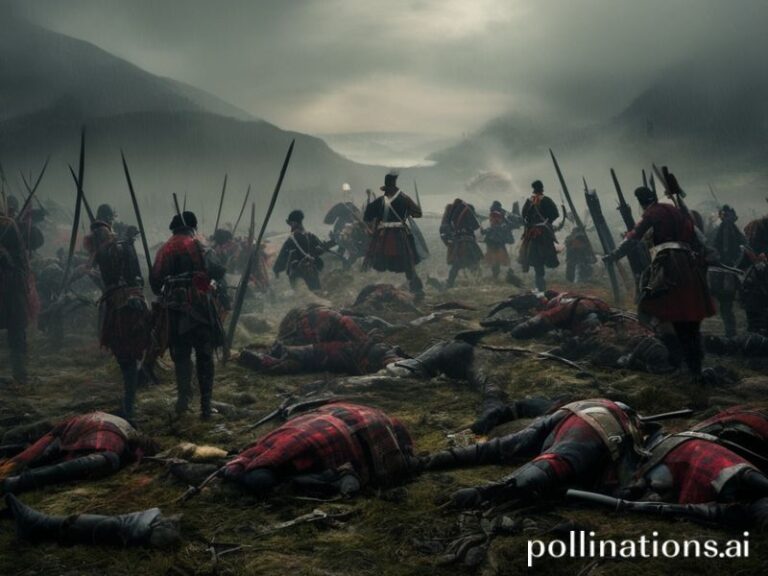Anglian Water: How a British Utility Became the World’s Leakiest Metaphor for Global Incompetence
Anglian Water and the Slow-Motion Flood of Global Incompetence
By Our Correspondent, Somewhere Slightly Above Sea Level
It takes a special breed of enterprise to turn the most basic miracle of civilisation—clean water appearing when you turn a tap—into a rolling international farce. Yet Anglian Water, the privatised utility tasked with keeping England’s driest, fastest-sinking region from reverting to swamp, has managed to do just that. While executives in Ipswich rehearse apologies and shareholders in Toronto count their dividends, the rest of the planet watches with the queasy recognition that Anglia’s plumbing debacle is less local mishap than global allegory.
Consider the numbers, suitably salted with despair. Anglian Water serves six million customers across East Anglia, a land area that, thanks to climate change and centuries of enthusiastic drainage, is subsiding at roughly the same rate middle-aged optimism collapses. The company cheerfully admits it leaks 18% of the water it treats—enough to fill Lake Windermere every three years, or to keep the entire city of Aleppo in showers for a decade. Internationally, such profligacy would qualify as a war crime against hydrology; in Norfolk it is merely “an improvement trajectory”.
The international audience may wonder why a regional British utility deserves column inches normally reserved for coups or crypto crashes. The answer is that Anglian Water is a perfectly distilled sample of the wider neoliberal experiment now dripping onto every continent. It is 51% owned by a Canadian pension fund, 19% by a Kuwaiti sovereign wealth vehicle, and the remainder by sundry Australian asset strippers—proof that when it comes to water, borders are porous in all the wrong ways. Your retirement savings in Toronto may thus be underwritten by a pensioner in Norwich flushing twice.
Meanwhile, the company has been fined £8 million here and £3 million there for turning rivers into open sewers. These figures sound impressive until one realises they are roughly what the CEO spends annually on artisanal beard oil. In the same week last autumn, Jakarta’s water authority was sentenced to prison terms for identical offences; Anglian’s board merely received a stern letter and a new PR agency. One rule for the damp, another for the merely moist.
The broader significance crystallises when you zoom out. From Cape Town’s Day Zero panic to Chennai’s tanker mafias, the world is relearning that water is not a commodity like any other; it is a commodity like oxygen—annoyingly non-negotiable. Anglian’s saga shows what happens when the profit motive is applied to something that literally falls from the sky. First you neglect the pipes, then you misreport the sewage spills, then you blame the customer for using too much of the stuff you failed to deliver. Lather, rinse, repeat—if you still can.
There is poetic symmetry in the fact that East Anglia’s medieval fenlands were drained by Dutch engineers whose descendants now own chunks of the same network via European infrastructure funds. History, like untreated effluent, has a way of flowing back to its source. The Dutch, who know something about keeping water in its place, must gaze across the North Sea with the same expression parents reserve for toddlers who’ve discovered scissors.
And so we reach the inevitable moral, delivered with the weary shrug of someone who has reported on coal mines that sell ice and airlines that lose gravity. When essential services are converted into financial instruments, the only thing that reliably trickles down is incompetence. Anglian Water’s leaks, fines, and creative accounting are not merely British eccentricities; they are the template for a thousand privatisations yet to come. From Lagos to Lima, investors are circling public utilities like vultures round a cracked cistern.
The planet will not die of thirst; it will die of irony. While Anglian’s PR team photographs otters reclaiming newly created wetlands (formerly high streets), the rest of us might ponder whether civilisation ends with a bang or, more fittingly, with a dripping tap no one can afford to fix. In the meantime, keep calm and carry a bucket. The water cycle, unlike the dividend cycle, has no customer complaints department.







